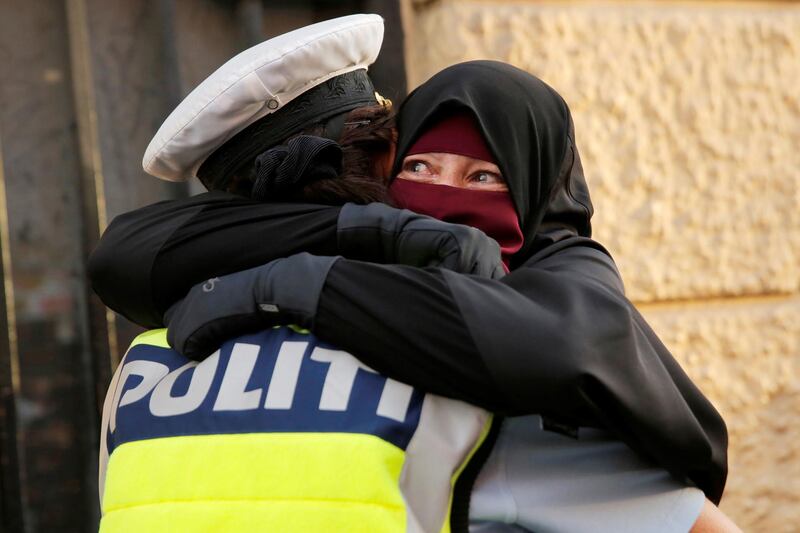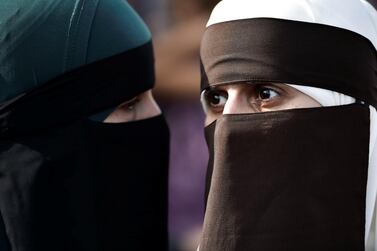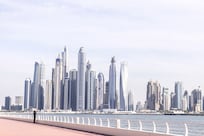A ban on face veils in Denmark has not permanently harmed the country’s standing among Muslims, the country’s ambassador to the UAE has claimed.
Exactly one year on from the Scandinavian state prohibiting the wearing of burqas and niqabs in public, Franz-Michael Skjold Mellbin, who took up his Abu Dhabi posting last year, said he believed even those who disagreed with the policy would take a broader view when forming an impression of his homeland.
Denmark became the focus of international attention on August 1 last year, when a ban on face coverings came into force.
Those who ignore the policy, which followed similar laws in several other European states, face fines of 1,000 Danish Krone (Dh549) for a first offence and up to 10,000 krone (Dh5,485) for a fourth violation.
Over the last 12 months, there have been 32 arrests under the law, Mr Mellbin said, although almost half of these have been for face coverings other than the burqas and niqabs, such as balaclavas and helmets.
“The fact is the original number of people wearing burqa and niqab in Denmark was very small,” Mr Mellbin, 60, said.
“We have also tried to manage the law in a respectful way. If you have a niqab or burqa, a police officer will not physically remove it.
"The first thing that will happen is a police officer will ask you to go home and change. Only if people refuse to do that will people be arrested.
“The day the burqa law was instituted, tensions were reduced in a very Danish way. There was a big demonstration, everybody was wearing burqa or niqab.
"The police decided since people are demonstrating, it is legitimate to wear a burqa, so they didn’t arrest people.
“One of the demonstrators felt very strongly about this and was crying, and was comforted by one of the police officers. That, of course, also sent a strong signal which helped reduce friction and confrontation around it.”
Although it is clear Islamic veils are the targets of the new rules, the legislation applies to all face coverings, not only the burqa, which covers a person's entire face, and the niqab, which only shows the eyes.
Anyone seen in public with their faces covered face fines if they do not have what is considered a good reason.
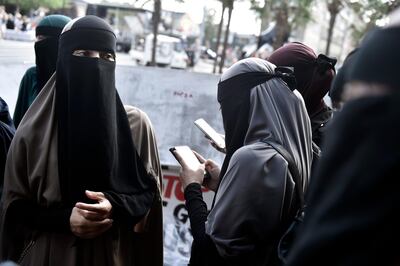
Copenhagen’s former ambassador to Afghanistan and Japan, Mr Mellbin declared his intention to increase tourism between the UAE and Denmark when he was appointed last year.
He admitted that research carried out immediately after the ban came into force showed Muslims were more reluctant to go on holiday to Denmark, but told The National the reaction would likely only be "momentary".
While he acknowledged that some anti-Muslim sentiment from Denmark’s populist, far-right parties had been a factor in driving the policy - amid claims the garments were symbols of extremism and oppression - he claimed it was not the main reason for its popularity.
Instead, he said support was rooted in a tradition of openness in the country, along with a desire for people to be able to “see who they were meeting in the public space”. Opinion polls suggest around two thirds of Danes supported the ban.
Bans of face veils have been upheld by the European Court of Human Rights, which must balance rights such as freedom of religion and expression against other legally-guaranteed values, such as democracy, and a responsibility to promote social cohesion.
Hero! Danish police officer takes a stand against the 'Burqa ban' as she embraces a Muslim woman wearing a Niqab. pic.twitter.com/5zvFgR9nVH
— muslim daily (@muslimdaily_) August 2, 2018
“Although it was conflated with religious issues and all kinds of other things, this is the argument people repeat again and again,” Mr Mellbin said. “‘I don’t want to go out in the public sphere and see people [when] I don’t understand who it is’.
“I’ve been in various different countries – Brazil, China, Japan, Afghanistan, UAE. I’ve always felt welcome and comfortable.
“But people in Denmark have another background and other expectations of how a society works and functions.
"If you look back at Denmark we’ve had a tradition for being quite open, at a personal level and also as part of our cultural tradition.
“I think it is interesting that a number of Muslim countries now have decided to have similar bans. You have Tunisia, Morocco, Chad, which have already implemented them, and you have Cameroon, Senegal, who have also proposed to do this.
"Those countries are obviously not doing that because they are anti-Muslim.”
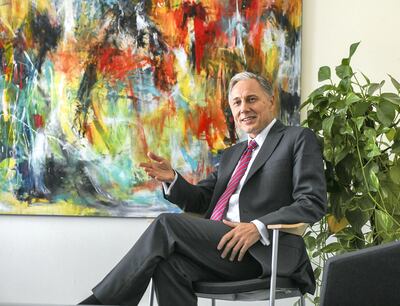
The one-year anniversary of the ban has provoked a new wave of debate in Denmark. The country’s new centre-left government, which took over from the centre-right in June, has continued to take a tough stance on issues such as immigration and has no plans to change the law.
However, the move has continued to be unpopular with some sections of Danish society, who view it as illiberal and hypocritical.
Last year, designer Reza Etamadi made a political statement at Copenhagen Fashion Week, when he sent models in burkas and niqabs down the catwalk, with others dressed as police officers.
The Iranian-born Danish designer said he wanted to “support women’s freedom of speech and freedom of thought”.
Mr Mellbin said he accepted that the policy would continue to divide opinion.
“I understand if people think this is not the right balance,” he said. “It’s an important discussion and we shouldn’t shy away from it.
“What is true for all countries is you have some strong selling points and some weak points. Let’s take the US – you have mass shootings in the US, you have them all the time, we just see a few in the newspapers. They have the death penalty, and the vast majority of Europeans hate the death penalty.
“The US also has superb things – the best universities in the world, they lead the internet revolution. I love to go to the US.
“So when people look at Denmark, they don’t just look at one thing. There will be things foreigners aren’t happy about, that people in Denmark aren’t happy about.
"There is also a lot to like about Denmark. We are the happiest nation, we are one of the most competitive, we are a very egalitarian society, we promote free speech, we are the place people are most happy at work.
“We are not living in a perfect world and Denmark is not perfect. But I love my home country, I think it’s a great country a lot of other people love it.”
